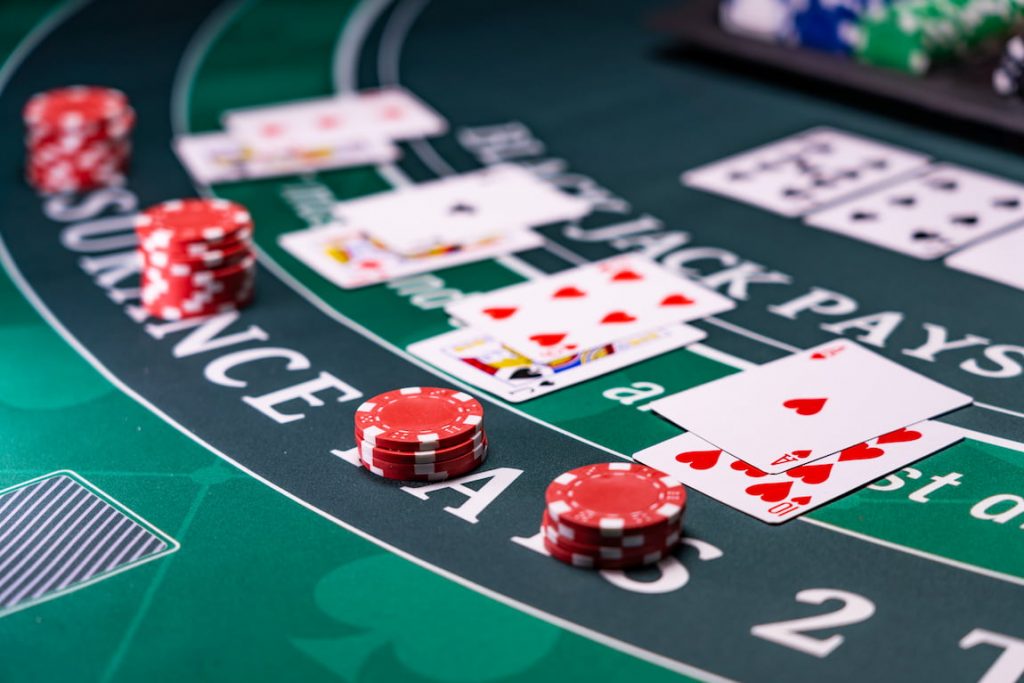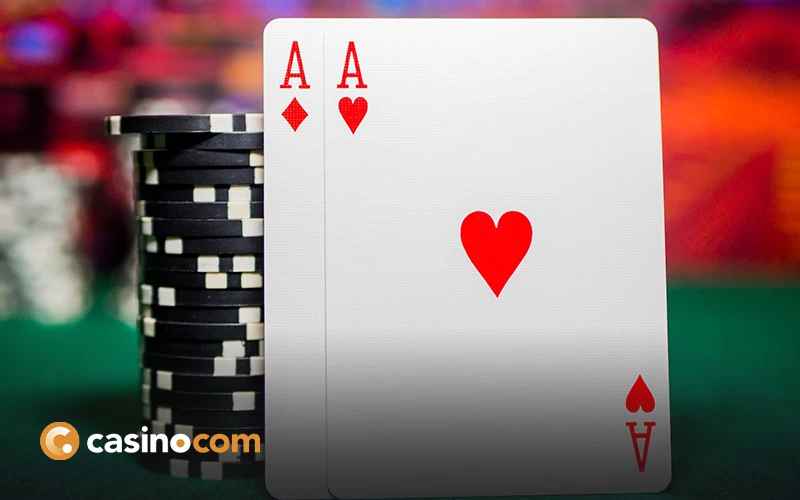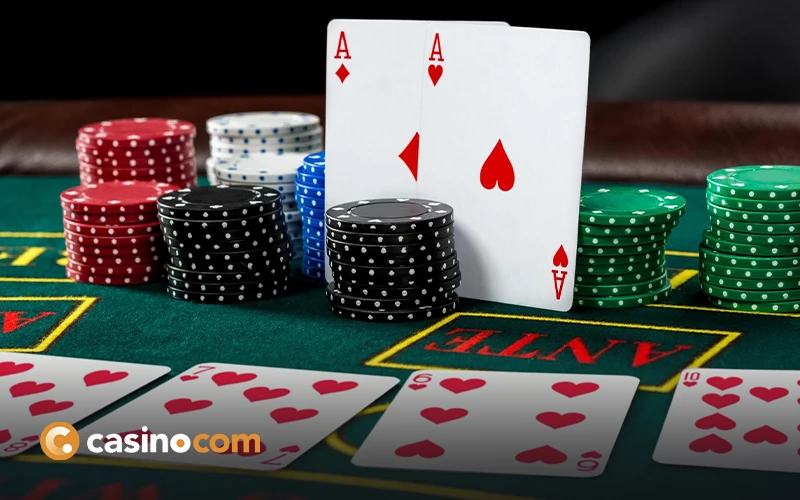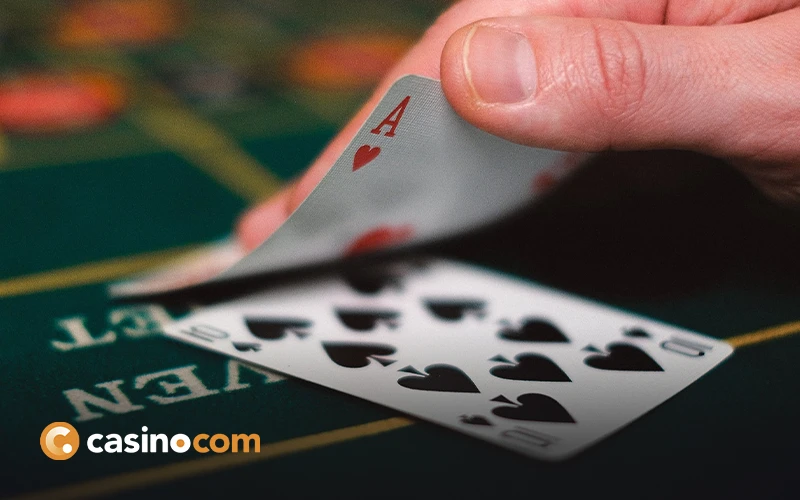The term “Insurance” is used to define a form of protection from financial loss. It is a very safe thing to do. You can insure your house, car, and belongings against accidental damage. This makes it all the more strange when you hear the term associated with the turbulent game of blackjack.
When playing blackjack, insurance can only be taken in certain circumstances. However, it does what it says, giving you a chance to break even on certain dealer hands. Below, we discuss blackjack insurance and why it is always a bad bet.
What is Blackjack Insurance?
Insurance is a slightly misleading term for this option in blackjack, as it is essentially a side bet. Once the cards have been dealt, if the dealer’s up card is an ace all the players will be offered the chance to take ‘insurance.’ The bet is made just before the dealer checks the hole card.
This is a bet made against the probability that the dealer will get a 10-value card to accompany their ace, creating blackjack. If they do, then the players will get a payout that sees them break even. To do this, the cost of a bet is usually half the amount of the player’s main wager and pays out at 2/1.
While there are some detractors from the insurance side bet, it does offer some advantages. Players can break even, even if they lose the main bet.

How Does Blackjack Insurance Work?
The general idea of blackjack insurance is to protect the player in the event that the dealer themselves has blackjack. It is a pretty simple concept so long as you know what to look for.
Should the dealer have an Ace as their face-up card, they will offer players the option to take insurance. This happens only after the cards have been dealt and before the dealer flips over their hole card. As soon as that happens, the hand progresses and the option for insurance is gone.
In order to buy insurance, a player must place a bet on the insurance line. They’re pretty clearly called out on a blackjack table; the dealer can even show the specific place where to lay that bet. An insurance bet will generally be up to half of the player’s original bet.
In the event the dealer has blackjack, the player(s) who made an insurance bet will earn a payout of 2:1 (or twice the amount of their insurance bet). If the dealer doesn’t have blackjack, the player loses the money from the insurance bet and the hand continues as it would. Players can still win or lose the original bet placed depending on what happens in the game.
Blackjack Insurance Winning Examples
You place a bet of $20.
Your hand is a nine and a queen. This gives you a value of 19.
The dealer has a face card which is an ace. You are offered the insurance bet.
The insurance bet is taken. It costs half your initial bet, which is $10.
The dealer turns their card over to reveal a card with a value of 10. Giving them a combined total of 21 they now have blackjack.
As a result, you win the insurance bet. This pays out at 2/1 so you manage to break even.
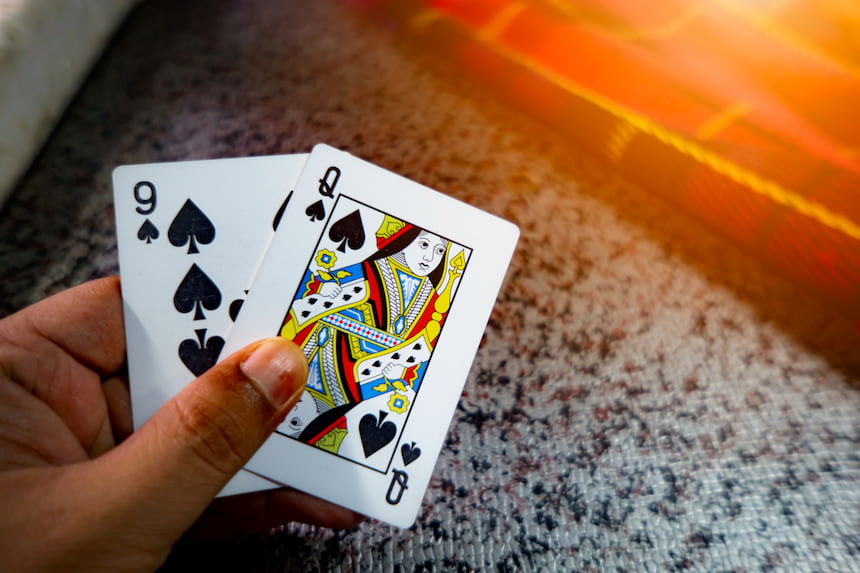
Blackjack Insurance Losing Examples
You make a bet of $20.
The dealer gives out the cards. You have a 7 and a queen. This gives you a hand of 17.
The dealer’s up card is an ace. You are offered the insurance bet and take it.
The insurance bet is half of your initial bet, so you put down $10.
The dealer reveals a 5. As they don’t have blackjack, you have lost the $10 insurance bet, but keep your $20 original bet.
The game then continues to see if the dealer can beat your total of 17.
Blackjack Insurance Odds
The odds of blackjack insurance are determined by several factors. The most obvious is how many decks are in the shoe. Knowing how many 10-value cards have already been dealt can also change the odds.
However, blackjack insurance states that the dealer’s other card has around a one in three chance of being a value of ten. This can sound quite appealing. Despite this, when playing, over time blackjack insurance does not offer favourable odds. Chances are if the dealer does have blackjack, you are more than likely to lose the main bet. Insurance will only see you break even, not make a profit.
Pros and Cons of Insurance Betting in Blackjack
In order to make the best decision possible regarding blackjack insurance, you need to know the pros and cons. Here are a few things to keep in mind before taking the insurance bet:
Pros
The first and most obvious advantage to taking the insurance bet is the protection it offers. Without it, the hand merely ends should the dealer have blackjack and the bet is lost. By taking insurance, players can get twice their insurance bet back to mitigate the loss of facing a dealer with blackjack. It isn’t a great long-term strategy but can help to reduce losses when facing a hot dealer.
Cons
At the end of the day, even a winning insurance bet is still a loss. Moreover, there is a negative expected value since the dealer isn’t going to have blackjack every time. As a matter of fact, the odds of them having blackjack are far less than the odds of them not having blackjack. Every insurance bet placed that doesn’t face blackjack is a loss.
Taking the insurance also provides the house a greater edge. The casino increases its advantage when a player takes insurance because they are going to come out with a winning value no matter what happens. Even if insurance is paid out, it doesn’t cover the entirety of the original bet.
Finally, implementing blackjack insurance can also be something of a distraction from basic blackjack strategies. Most experienced players will stay away from insurance for this reason. They focus on hand-based strategies, which gives them a greater chance of winning over a long period of time.
When to Take Blackjack Insurance
Operating under the assumption that you believe in the insurance strategy, it helps to know when to deploy it. Having a strategy surrounding blackjack insurance can help prevent you from playing it too often to a loss.
When betting large sums of money, insurance can be a great way to mitigate those potentially high losses. If you have a strategy in place and have a high count, insurance can be a good option if you feel that the odds are in your favor.
Lastly, blackjack insurance can come in handy when playing in blackjack tournaments. From time to time, risks are necessary in order to increase chip stacks and advance to the next round. Taking insurance in very specific scenarios can be thought of as a calculated risk.
Is Blackjack Insurance a Good Idea?
Most experts will advise against blackjack insurance. It should only really be used by seasoned professionals. Even then, it still does not offer good enough odds to payout ratios.
For example, imagine you play against a dealer in a one-deck game. You do not have any 10-value cards in your initial hand. This is the best-case scenario as now, 16 of the cards remaining have a value of 10. This means your insurance has the best possible chance of coming up.
Long term though, this is not great. Assuming all your blackjack insurance bets have this most likely outcome (it is very unlikely they will) then you would still encounter a loss. If you play 49 times, the bet has an average of 16 wins and 33 losses. If you bet $10 each time, making $20 back, this would bag you $320. However, bet this with the losses and you come out $10 short. Add to this that most games do not have a one-deck shoe and that other players may have 10 value cards and predicting the probability becomes a tough one anyway.

